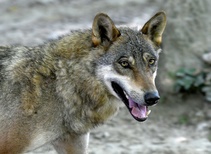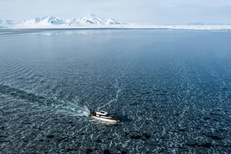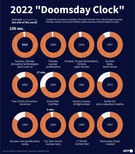Norway to offer record number of Arctic oil, gas exploration blocks
Norway on Tuesday said it plans to offer a record number of gas and oil exploration blocks in the Arctic, with environmental NGOs condemning an "aggressive" promotion of fossil fuels.. The NGO said the proposal would violate the commitment not to explore virgin territory as some blocks were to be located far from existing infrastructure.













